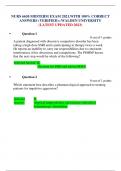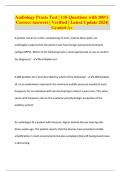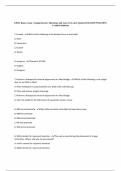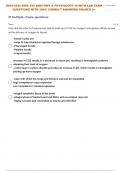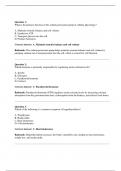Exam (elaborations)
MTTC 106 general & special education Exam | Questions And Answers Latest {} A+ Graded | 100% Verified
- Course
- Institution
MTTC 106 general & special education Exam | Questions And Answers Latest {2024- 2025} A+ Graded | 100% Verified
[Show more]




